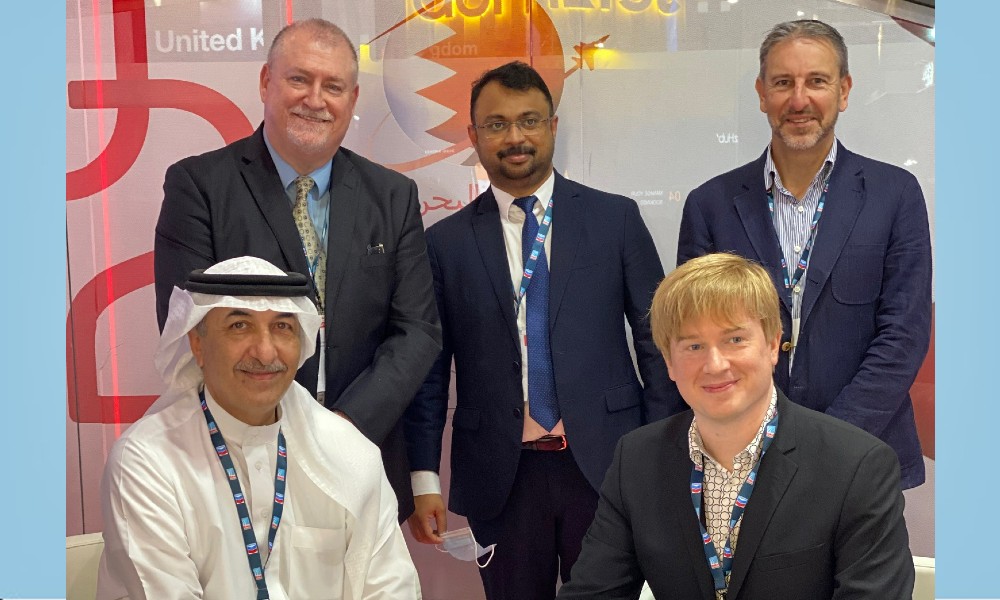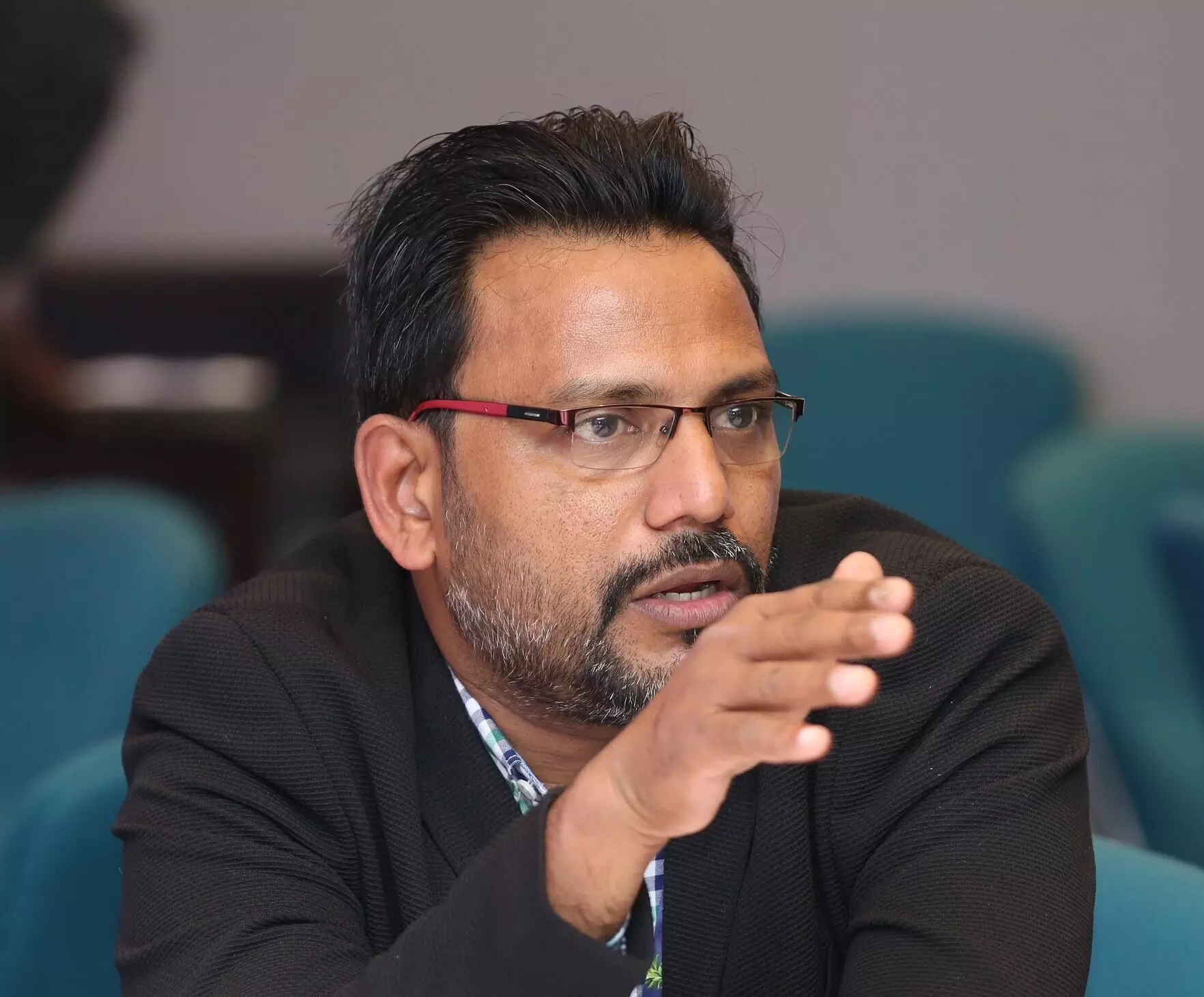
Building solutions to make sure supply chain is 100% effective
Tristan Koch, Chief Commercial Officer of Awery Aviation Software, talks about Awery’s vision to set the benchmark in the way the likes of Skyscanner and Booking.com have in other sectors.

Awery is a software development company and IT service provider founded in 2009 by Vitaly Smilianets. Its products have been developed in close cooperation with aviation and logistic companies to reflect up-to-date market demands and to offer tailored complete business cycle solutions with unlimited expansion capabilities. In an interview with Reji John, Tristan Koch, Chief Commercial Officer of Awery Aviation Software, talks about Awery’s vision to set the benchmark in the way the likes of Skyscanner and Booking.com have in other sectors. Koch, who joined Awery in January this year, has more than two decades of experience in aviation and air cargo sectors working with global airlines like British Airways, American Airlines and IAG. He has led large air freight sales teams, managed major restructuring and digital transformations projects across the world.
Tell us briefly about the current mix of products and solutions from Awery for the air cargo customers?
We have been developing aviation services software for over 12 years now and as such have a wide range of products. At one end of the scale, we provide full ERP solutions for cargo aircraft operators that encompass all their workflow needs. We are the only provider that offers full flight operations and management with full back-office support for accounting and HR etc. At the other end of the scale, we offer an out of the box ready to use charter broker system. We also provide cargo management systems for GSSAs and ecommerce solutions. We even run the logistics for a cake company in the Middle East!
As innovative developers we focus on all clients regardless of size and IT capability. We can integrate with the other leading IT platforms to give customers additional functionality through our CargoBooking portal, or we can help smaller less tech-ready organisations adopt our IT to digitalise all their legacy processes.
How strongly do you think that the future of freight is digital and to that extent how does Awery build solutions that respond quickly to rapidly evolving market challenges and help your customers to stay ahead?
We know the future in freight is digital! We pride ourselves on our agility and ability to adapt to changing customer needs and market conditions. A good example is our EMagic technology. During Covid customers have become inundated with email traffic for quotes, bookings, and other enquiries. Through EMagic we use AI to translate those emails and various texts and images across multiple languages into automated digital transactions. This saves a lot of manual processing and speeds up responses to clients.
If your goods are delivered as expected and on time 100% of the time, are you really interested in where they are at any given time? We focus on making sure the supply chain is 100% effective rather than report the problems
Tristan Koch, Awery Aviation Software
How important do you think are the emergence of digital marketplaces that connect supply and demand with easy to use cloud-based API-integrated platforms allowing easy listing and discovery of capacity? Does Awery consider entering in this space?
We are already in this space with our CargoBooking platform. At present it is being used mostly by airlines and GSSAs under a white label own brand version. We think that this is a marketplace still in its infancy and are keen to make inroads. Freight forwarders want choice, and the airlines want multiple distribution channels so there is plenty more to be done.
Shipment visibility has been a key and growing trend in the logistics industry and the pandemic has made logistics stakeholders to place shipment visibility as a top priority. What are your thoughts and how does Awery build solutions that ensure visibility and transparency through the supply chain journey from origin to destination?
We have spent a lot of time developing track & trace, but the industry is still reliant on multiple partners to do their part. If your ground handler, trucking or warehouse partner does not scan the freight or send an FSU there are still blind spots. At Awery we make these processes as automated as possible but until we have full RFID trackers it may still have blips. We use proactive analysis to give a virtual response that is then backed up by a physical confirmation. However, the fascination with shipment visibility may erode in my opinion. If your goods are delivered as expected and on-time 100% of the time, are you really interested in where they are at any given time? We focus on making sure the supply chain is 100% effective rather than report the problems.
Congestion is a serious issue at airports, particularly during the pandemic and now in the peak season. How does your solution for cargo handling companies address this issue?
We don’t have a specific product to manage GHAs and handlers, but we ensure the information we provide to these organisations through our other products is accurate and timely ensuring they can perform their role effectively.
How does Awery intend to set benchmarks when it comes to developing digital transformation tools for the air cargo industry customers and how would you like to influence the course of industry’s direction towards total digitalisation?
We aim to bring not just the efficiencies of an online digital experience to existing processes but to also to bring new functionality and parties to the traditional air freight model. We have also spent a lot of time ensuring our UX meets the expectations of the next generation of air freight employees. We want to set the benchmark in the way the likes of Skyscanner and Booking.com have in other sectors.
What do you think is the role of collaboration and cargo community systems to create smart cargo facilities of the future to deal with increasing volume of special cargo and ecommerce?
The landscape is currently a little confused and there are no common standards or effective forums for collaboration. IATA announced at the World Cargo Symposium in Dublin the adoption of API standards in the cargo world. A start but not enough. What we need is increased collaboration across and beyond the traditional boundaries within the industry. We are already holding talks with a wide range of affiliated and also unconnected potential partners. Watch this space!
Do you think technology applications could be deployed to address sustainability goals?
At Awery, we believe that we are already making a contribution. The amount of wasted energy and effort in correcting mistakes is huge. By ensuring shipments are accurately booked, delivered, and flown we are saving work time and physical resources. We facilitate the usage of capacity that would otherwise go unused. We create more efficient routings to minimise miles flown/trucked.
Do you agree with the fact that organisations with a strong technology adoption and digitalisation strategy had and continue to have an upper hand in dealing with disruptions like the Covid pandemic?
Undoubtedly those that had the tools to respond quickest and reach their clients have been successful. As working practices shifted the ability to transact remotely and in new ways was essential.
Tell us about the new technologies that you are passionate about and those that will help air cargo industry to deliver better, lower costs and always be sustainable?
The use of AI to translate manual tasks to automated ones and provide proactive optimisation to previously static processes is a game changer. EMagic is our first launch in this field and hopefully the first of any.

